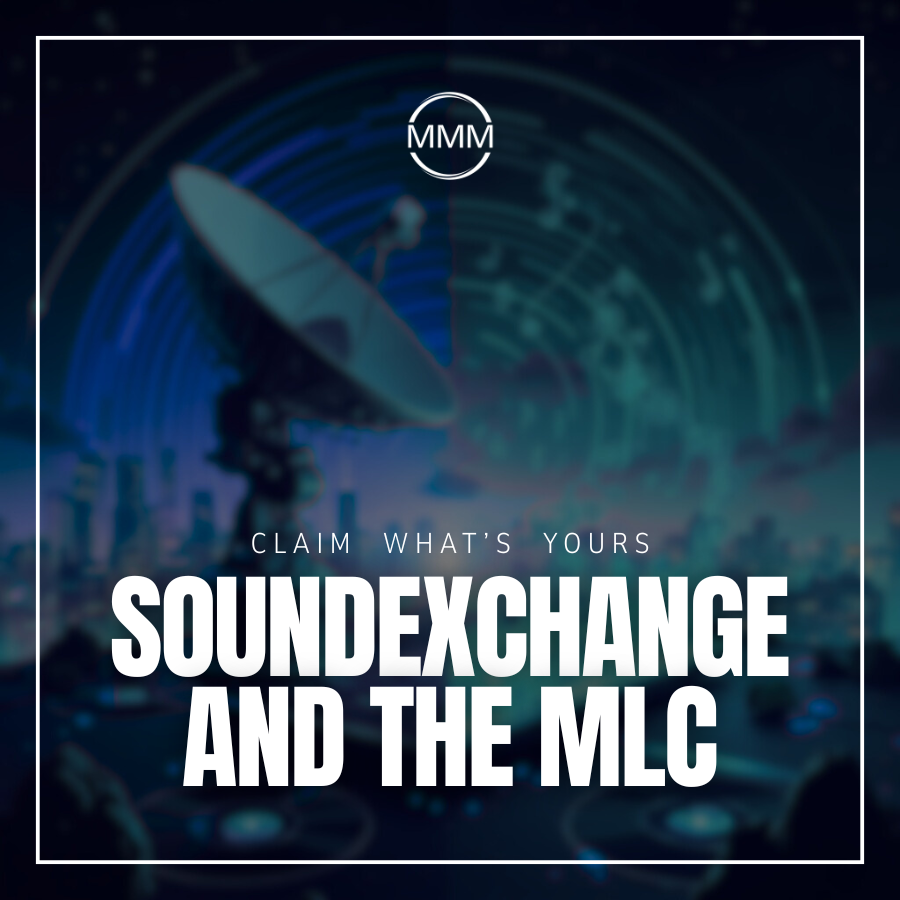SoundExchange and The MLC: Claim What’s Yours
In today’s music industry, streaming dominates the revenue landscape. Even so, the digital shift has made royalty management more complex. That’s where platforms like SoundExchange and The MLC (Mechanical Licensing Collective) step in.
Artists, songwriters, producers, and rights holders use these platforms to secure their payment. Let 92MMM break it down: what they do, how they’re different, and why you need both.

What Is SoundExchange?
SoundExchange is a nonprofit organization that collects and distributes digital performance royalties for sound recordings in the U.S.
Who gets paid by SoundExchange?
- Featured artists (like lead singers or band members)
- Rights holders (usually the label or independent artist who owns the master)
- Non-featured artists (like background singers or session players via AFM/SAG-AFTRA fund)
These royalties come from:
- Non-interactive streaming platforms (Pandora, SiriusXM, web radio)
- Internet radio and other digital radio-style services
Why it matters:
Without registering with SoundExchange, you could lose your share of royalties—it would just sit in a black box.
What Is The MLC?
The Mechanical Licensing Collective (The MLC) handles mechanical royalties for U.S. streaming services like:
- Spotify
- Apple Music
- Amazon Music
- Tidal
These royalties are owed to songwriters and publishers when a song is reproduced or streamed.
Who should register with The MLC?
- Songwriters (even if you’re also the artist)
- Publishers (or self-administered writers)
- Anyone who owns the composition rights and has their work streamed in the U.S. qualifies
Why it matters:
Before The MLC existed, companies collected mechanical royalties inconsistently. Now, there’s one official body to handle all blanket licenses from DSPs in the U.S.—but you have to register to claim your share.
SEO keywords: The MLC royalties, U.S. mechanical royalties, register with The MLC, streaming mechanical royalties
Difference Between SoundExchange and The MLC Explained
| Platform | Collects For | Rights Type | Who Gets Paid |
| SoundExchange | Non-interactive digital streaming | Sound recording rights | Featured artists, rights holders, session musicians |
| The MLC | On-demand streaming (e.g. Spotify) | Composition rights | Songwriters and publishers |
They don’t overlap. If you’re a writer and an artist, you need to register with both to cover your full royalty landscape.
Why Indie Artists Can’t Skip These Platforms
If you distribute music through TuneCore, DistroKid, or CD Baby, you still need to manually register with SoundExchange and The MLC to:
- Collect performance and mechanical royalties
- Ensure no money goes unclaimed
- Monitor your royalty earnings
- Fix metadata and publishing gaps
Quick Steps to Get Started
How to Register with SoundExchange:
- Visit soundexchange.com
- Create an artist or rights owner account
- Provide banking + tax details
- Start claiming your digital performance royalties
How to Register with The MLC:
- Go to themlc.com
- Sign up as a creator (self-administered songwriter) or publisher
- Submit song details and ISWCs
- Track your mechanical royalties through their dashboard
Final Takeaway
Platforms like SoundExchange and The MLC exist to make sure the money you’ve earned through your streams, airplay, and songwriting doesn’t slip through the cracks. But they don’t know who you are unless you register.
Whether you’re a fully independent artist or a producer/songwriter behind the scenes, these platforms ensure you:
- Get paid from U.S. streaming activity
- Stay legally protected
- Collect both recording and publishing royalties

